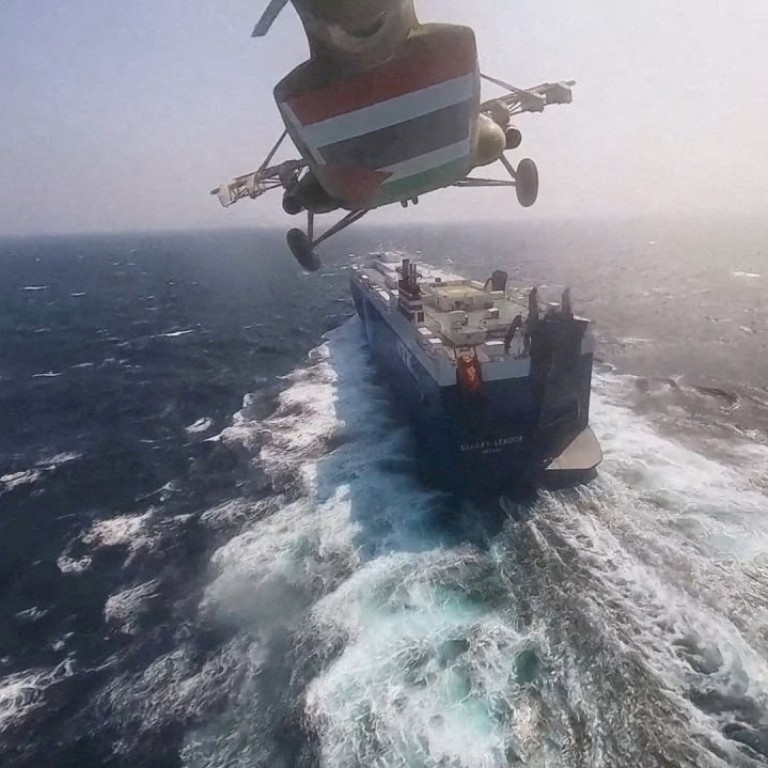
China’s inaction over Red Sea shipping attacks could exact a high price
- China has not joined a US-led effort to counter Houthi attacks on ships in the Red Sea, although inflation from shipping disruptions hurts the Global South
- Beijing appears to be engaged in geopolitical manoeuvres rather than prioritising regional security
As shipping in the Red Sea continues to be disrupted, the US wants China to leverage its influence with Iran to resolve the Houthi conflict.
Major shipping companies, including China’s Cosco, have diverted commercial traffic away from the Red Sea or stopped using the route, which is a gateway to Egypt’s Suez Canal and normally carries up to 12 per cent of global trade.
Yet China, with its significant security and economic interests in the region, is not part of efforts to stop the Houthi shipping attacks.
Although China has a military base in the Red Sea nation of Djibouti meant to counter piracy and terrorism, there is no evidence of Chinese warships being deployed in the Bab-el-Mandeb Strait. Beijing has also remained silent on the Houthi attacks.
But this stance lacks depth and relevance against the nuanced perspectives in Arab capitals, notably Riyadh and Abu Dhabi, where leaders also grapple with the violent threat of Iranian-backed groups like the Houthis.
While Riyadh, Abu Dhabi and Cairo have not explicitly supported the US-led maritime task force against the Houthis, it is reasonable to assume they would at least favour a multilateral defensive action against this terrorist threat.
Diplomacy is preferred but the patience of these Arab nations can easily run out in the face of unrelenting Houthi attacks on their seaborne trade – they may eventually feel the need to support a military strike on the Houthis in Yemen. China’s inaction would be judged.
With Hamas and the Houthis drawing American attention in the Middle East, Washington’s strategic focus could move away from the South and East China seas, giving Beijing the time and space to assert its influence in the region’s disputed maritime areas.
While China’s stance on Israel’s indiscriminate bombardment of Gaza partially aligns with the diplomatic approaches favoured by Arab and Islamic countries, Beijing has shown no indication that it endorses the Arab nations’ opposition to the militaristic approach of Iran-backed groups.
China may criticise the US for turning the Middle East into a geopolitical arena but it appears to be equally engaged in geopolitical manoeuvres against the US rather than prioritising regional security.
Food or fight? Asia’s supply chains at risk amid Red Sea attacks
Even if it avoids supporting the US-led naval task force in the Red Sea, Beijing should engage in diplomacy with Iran and its regional proxies to prevent actions that have adverse economic consequences for the people of the Global South. Inflation ultimately hurts ordinary people as businesses transfer their costs to consumers.
For China, undermining American credibility and diverting its political and military resources away from the Western Pacific region is coming across as more important than doing what it can to address the economic consequences of the shipping disruptions for countries and people in the Global South.
Asma Khalid is an independent researcher and former visiting fellow at the Stimson Centre

